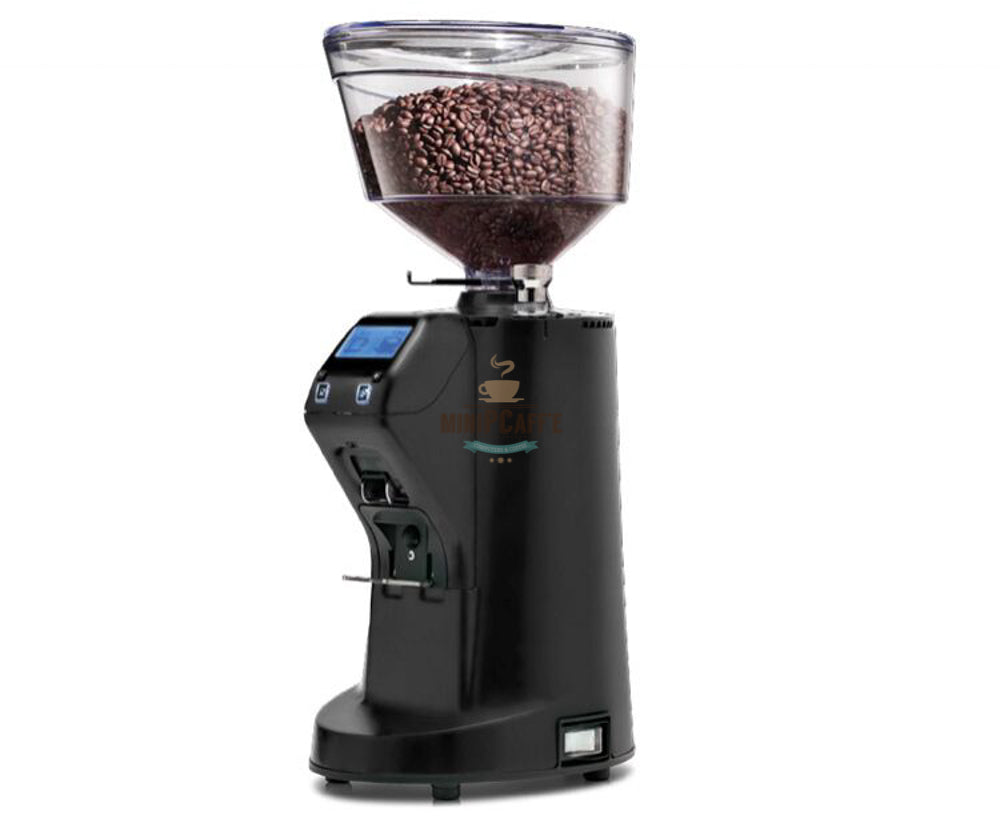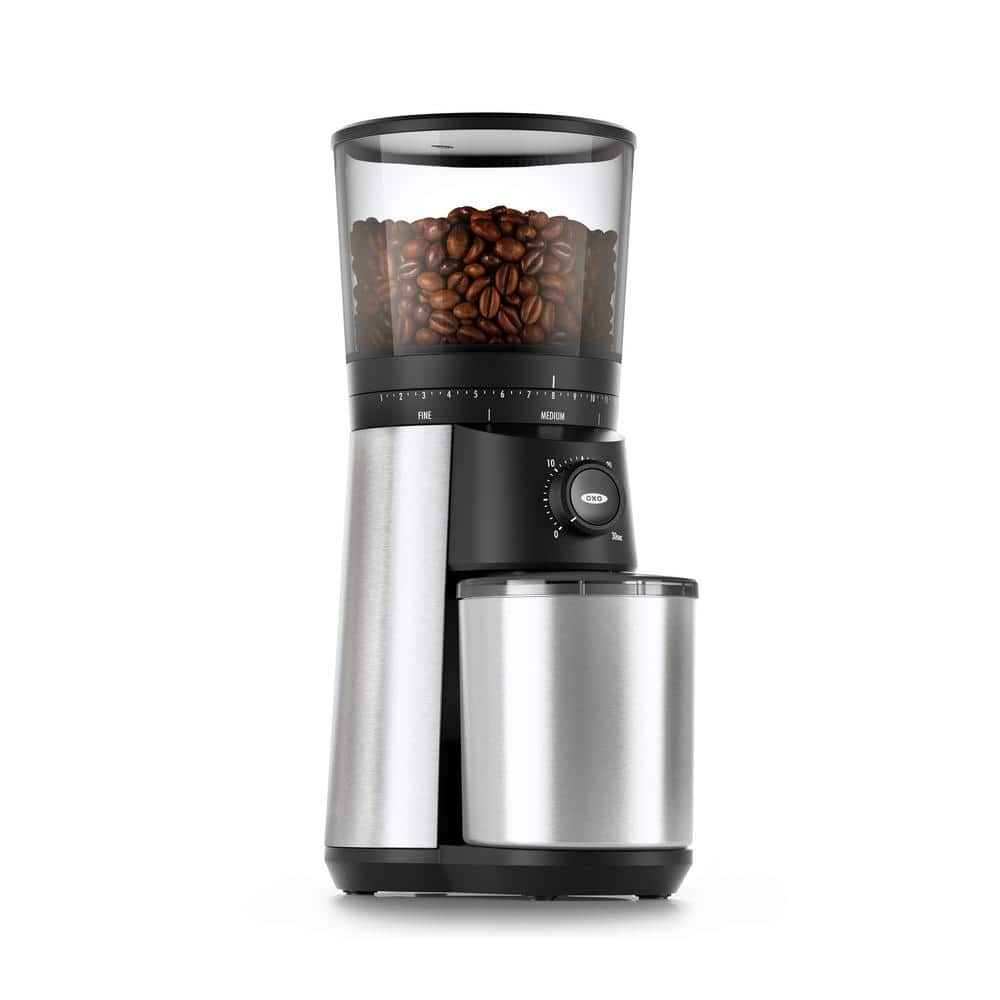Industrial Coffee Grinder: Top Features to Look for When Buying
Industrial Coffee Grinder: Top Features to Look for When Buying
Blog Article
Exactly How to Choose the Perfect Industrial Coffee Grinder for Your Service
Selecting the excellent commercial coffee grinder for your organization is a diverse choice that calls for careful factor to consider of numerous crucial aspects. Furthermore, understanding the various types of mills available can dramatically influence your functional performance.
Assess Your Grinding Demands
When selecting a commercial coffee grinder, one must first analyze their grinding needs to ensure optimum efficiency and uniformity. This first assessment entails comprehending the quantity of coffee to be refined daily, as well as the desired grind size for various brewing methods. A high-capacity grinder might be needed for organizations serving big quantities of coffee, while smaller sized operations might locate a much more compact design sufficient.
Additionally, it is vital to take into consideration the kinds of coffee beans being used, as different beans may require certain grinding techniques to achieve the best taste profile. For circumstances, oily beans may necessitate a grinder designed to take care of such features without overheating or clumping.
Another vital factor is the required grind consistency. Specialized coffee organizations frequently require precise grind dimensions to improve extraction and taste, making it crucial to pick a mill that can provide consistent outcomes. Examining the offered room and electrical requirements will aid in choosing a grinder that fits flawlessly into your functional process. By thoroughly assessing these aspects, businesses can make informed choices that line up with their coffee grinding needs, eventually causing an exceptional product and completely satisfied consumers.
Understand Grinder Types
Comprehending the different kinds of industrial coffee grinders is essential for making an informed choice that fulfills specific operational requirements. There are largely 2 classifications of mills: blade mills and burr mills.
Blade mills utilize rotating blades to cut the coffee beans, resulting in an irregular work dimension - Industrial Coffee Grinder. While they may be extra budget friendly, they are usually not suitable for industrial applications where precision is important
On the various other hand, burr grinders supply a much more consistent grind by crushing the beans between 2 surface areas. They can be further classified into flat burr and conical burr mills. Flat burr mills offer a consistent grind dimension and are typically favored for espresso preparation, while conelike burr grinders are flexible and can handle a series of mixture techniques, from coffee to French press.
When selecting a mill, consider the certain demands of your organization, consisting of preferred grind uniformity, manufacturing quantity, and the types of coffee drinks you plan to provide - Industrial Coffee Grinder. Each mill type has its advantages and limitations, so understanding these subtleties enables informed decision-making that aligns with functional objectives
Evaluate Grind Dimension Uniformity
Achieving work size uniformity is vital for producing top quality coffee, as variants in bit size can dramatically impact extraction and flavor. When choosing a commercial coffee mill, it is important to examine just how well the maker keeps uniformity in grind dimension throughout various batches. Irregular work dimensions can result in uneven extraction, leading to a mug that may taste overly bitter or weak.
To assess grind dimension uniformity, think about mills with functions such as adjustable work settings and high-grade burrs. Burr mills, particularly, succeed in producing uniform fragment dimensions contrasted to blade grinders. The product and shape of the burrs play a vital role, with stainless-steel and ceramic choices offering sturdiness and accuracy.

Take Into Consideration Production Capacity
In the busy globe of coffee manufacturing, taking into consideration production capability is paramount for companies intending to satisfy need without compromising top quality. The manufacturing ability of a commercial coffee check these guys out mill straight influences a company's capability to meet orders efficiently, handle stock, and reply to changing market patterns.
When evaluating manufacturing capability, it is vital to evaluate the mill's output price, commonly gauged in pounds per hour. This measurement should line up with your business's projected sales volume and development targets. A café with a high turn over might call for a mill that can process a number of hundred extra pounds daily, while a smaller procedure might be sufficient with a lower ability design.
Furthermore, consider the sort of coffee being processed. Various beans and blends may influence grinding speed and efficiency, requiring a mill efficient in dealing with varied manufacturing requirements. It's additionally worth considering the mill's capacity to maintain consistent high quality under high output conditions, as any kind of fluctuations can influence the final item.
Eventually, selecting a grinder that matches your organization's production capacity will certainly guarantee you stay competitive and responsive to customer expectations.

Spending Plan and Upkeep Variables
When reviewing the right commercial coffee upkeep, grinder and spending plan elements play a significant function in the total decision-making procedure. A first investment in a premium mill can produce long-lasting advantages, yet it's vital to establish a clear spending plan that straightens with your company's functional demands. Take into consideration both the purchase price and potential functional expenses, such as energy usage and substitute parts.
Industrial coffee grinders call for routine upkeep to make certain optimal performance and longevity. Assess the supplier's recommendations for maintenance, including cleansing timetables and components substitute, as these will affect lasting functional prices.

Spending in a grinder that is long lasting yet easy to maintain can save money over time. While lower-priced choices may be alluring, they might incur higher upkeep expenses and reduced performance. Ultimately, balancing official source preliminary costs with long-lasting upkeep and operational performance will direct you to the very best option for your organization's coffee grinding needs.
Final Thought
Selecting the ideal commercial coffee mill demands a comprehensive analysis of grinding requirements, grinder kinds, grind size uniformity, production capacity, and financial considerations. An appropriate mill not only improves the top quality of the coffee created but also contributes to the general success and success of the venture.
Specialty coffee services typically demand accurate grind sizes to enhance removal and flavor, making it vital to select a mill that can provide uniform results. Flat burr mills supply a regular grind size and are generally preferred for coffee prep work, while cone-shaped discover this burr grinders are flexible and can deal with an array of brew methods, from coffee to French press.
When choosing a commercial coffee mill, it is essential to examine exactly how well the equipment keeps harmony in grind dimension across different sets. Burr mills, in certain, stand out in generating uniform particle dimensions contrasted to blade grinders.Choosing the ideal commercial coffee grinder necessitates a complete analysis of grinding requirements, grinder types, grind dimension consistency, production capacity, and financial factors to consider.
Report this page